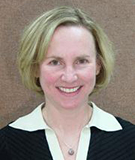WSU smart home tests first elder care robot
adrianaA robot created by Washington State University scientists could help elderly people with dementia and other limitations live independently in their own homes.
The Robot Activity Support System uses sensors embedded in a WSU smart home to determine where its residents are, what they are doing, and when they need assistance with daily activities.
It navigates through rooms and around obstacles to find people on its own, provides video instructions on how to do simple tasks, and can even lead its owner to objects like their medication or a snack in the kitchen.

For the last decade, Diane Cook, Regents professor of electrical engineering and computer science and director of the WSU Center for Advanced Studies in Adaptive Systems, and Maureen Schmitter‑Edgecombe, a WSU professor of psychology, have led CASAS researchers in the development of smart home technologies that could enable elderly adults with memory problems and other impairments to live independently.
Find out more
WSU Insider
Science Magazine
CanIndia
India 4U – click to view
Austin Indian – click to view
Newscaf – click to view
Science Daily – click to view
Radiology Business Journal – click to view
Headlines & Global News – click to view
Nature World News – click to view
New Atlas – click to view
Yahoo Singapore – click to view
Indian Bloom – click to view
WebIndia – click to view
Innovation Toronto
Engineering 360 – click to view
Austin Indian – click to view
Trend Hunter – click to view
15 Minute News – click to view
Yahoo UK – click to view
Irish Examiner – click to view
China.org – click to view
News Live – click to view
Her Family – click to view
Free Press Journal – click to view
BioPortfolio – click to view
GearBrain
MedIndia
Dementia Views
Prosyscom Technews – click to view
Farm Week – click to view
The Week – click to view
NewsBytes – click to view
Digital Health – click to view
MENAFN – click to view
Daily Evergreen – click to view
 When Ryan Booth began his research into Indian scouts who were recruited by the U.S. Army, he discovered only two military forts had complete records of the scouts: Fort Apache in Arizona and Fort Keogh at Miles City.
When Ryan Booth began his research into Indian scouts who were recruited by the U.S. Army, he discovered only two military forts had complete records of the scouts: Fort Apache in Arizona and Fort Keogh at Miles City.

